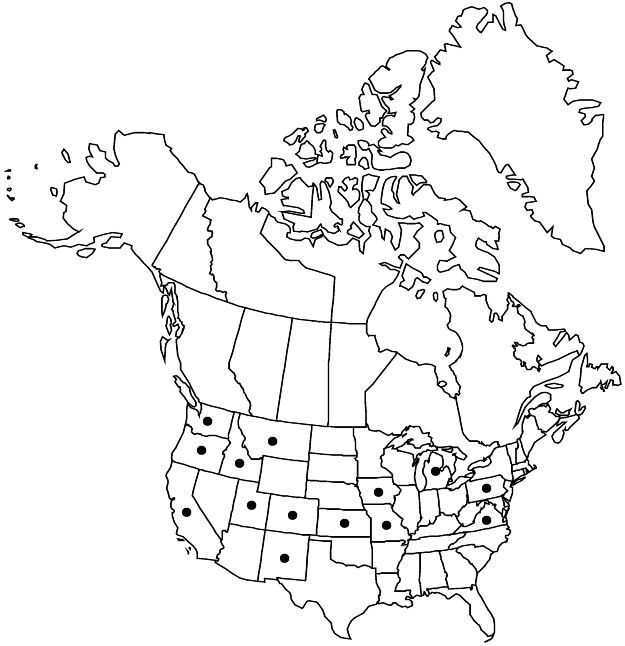Prunus armeniaca
Sp. Pl. 1: 474. 1753.
Trees, not suckering, 50–100 dm, not thorny. Twigs with axillary end buds, glabrous. Leaves deciduous; petiole (12–) 20–45 mm, glabrous, glandular distally or on margins at bases of blades, glands 1–5; blade broadly ovate to suborbiculate, (3–) 5–9 × (2–) 4–8 cm, base usually obtuse to rounded, sometimes truncate or subcordate, margins singly to doubly crenate-serrate, teeth blunt, glandular, apex abruptly short-acuminate, abaxial surface with tufts of hairs in vein-axils, adaxial glabrous. Inflorescences solitary flowers. Pedicels 1–3 mm, hairy. Flowers blooming before leaf emergence; hypanthium tubular-campanulate, 4–6 mm, glabrous or sparsely hairy externally; sepals reflexed, oblong-ovate, 4–6 mm, margins remotely glandular-toothed, surfaces sparsely hairy; petals white (pink in bud), broadly elliptic to suborbiculate, 8–12 mm; ovaries hairy. Drupes yellow to orange, often tinged with red, ellipsoid to globose, laterally compressed, 25–60 mm, velutinous; mesocarps fleshy; stones ellipsoid to subglobose, strongly flattened, not pitted. 2n = 16.
Phenology: Flowering Mar–Apr; fruiting May–Jul.
Habitat: Roadsides, abandoned plantings
Elevation: 20–1600 m
Distribution

Introduced; Calif., Colo., Idaho, Iowa, Kans., Mich., Mo., Mont., N.Mex., Oreg., Pa., Utah, Va., Wash., Asia (China)
Discussion
Commercial production of apricots in North America is in the western United States, mostly in the San Joaquin Valley of California. There is little market for fresh apricots because of their extremely short shelf life; most fruits are preserved by drying.
Selected References
None.